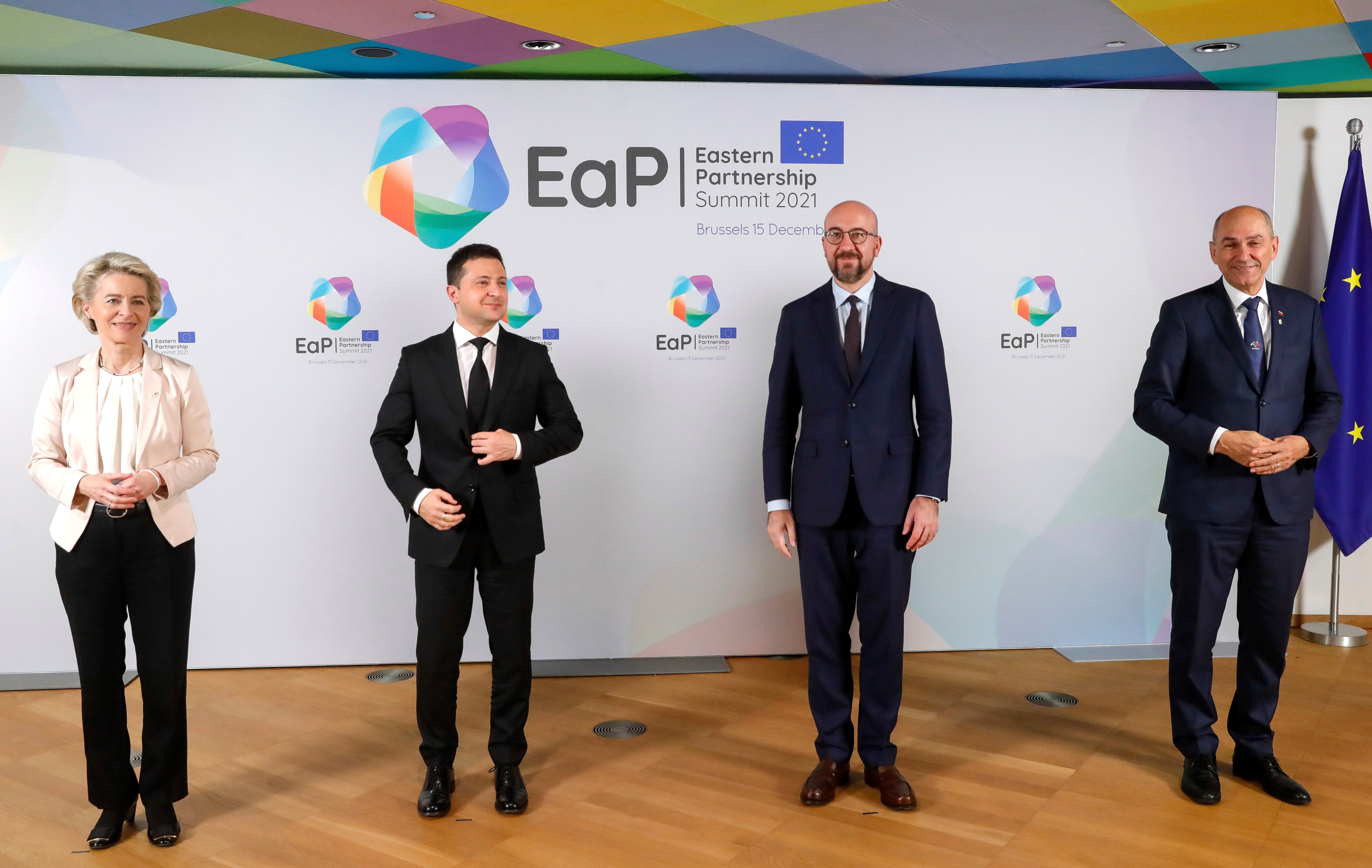EU, ex-Soviet state leaders meet as Russia tensions simmer
European Union leaders are meeting with their counterparts from five former Soviet republics, including Ukraine, with an eye toward deepening political, trade, energy and cultural ties

Your support helps us to tell the story
From reproductive rights to climate change to Big Tech, The Independent is on the ground when the story is developing. Whether it's investigating the financials of Elon Musk's pro-Trump PAC or producing our latest documentary, 'The A Word', which shines a light on the American women fighting for reproductive rights, we know how important it is to parse out the facts from the messaging.
At such a critical moment in US history, we need reporters on the ground. Your donation allows us to keep sending journalists to speak to both sides of the story.
The Independent is trusted by Americans across the entire political spectrum. And unlike many other quality news outlets, we choose not to lock Americans out of our reporting and analysis with paywalls. We believe quality journalism should be available to everyone, paid for by those who can afford it.
Your support makes all the difference.As tensions with Russia simmer, European Union leaders met Wednesday with their counterparts from five former Soviet republics, including Ukraine with an eye toward deepening political, trade, energy and cultural ties.
The EU’s Eastern Partnership includes Armenia, Azerbaijan, Belarus, Georgia Moldova and Ukraine. The president of Belarus, Alexander Lukashenko is boycotting the forum due to EU sanctions over reported fraud in his reelection last year a security crackdown on antigovernment protesters that followed.
The Eastern Partnership was set up after Moscow sent troops into Georgia in 2008, stunning the Europeans and much of the world. It aims to improve and deepen relations among the six countries, most of which share borders with Russia and are strategically important energy hubs, as well as with the 27-nation EU.
The meeting was intended to affirm the participants' “strong commitment to our strategic, ambitious and forward-looking” partnership, based “on common fundamental values,” according to a draft of the summit statement seen by The Associated Press.
The countries taking part in the meeting will also say that they “are bound by our joint determination to further strengthen democracy and the rule of law in our societies,” according to the text, which could change before the planned 6-hour meeting ends.
The EU is likely to offer the Eastern countries a 2.3-billion-euro ($2.6 billion) economic and investment plan, which the bloc hopes will attract up to 17 billion euros ($19 billion) in public and private investments for the region.
The meeting also will see the EU put the emphasis on “differentiation” – the acceptance that some of the six may be in a position to deepen their relations with the bloc more quickly. Georgia, Moldova and Ukraine, for example, have free trade pacts that ease tariffs and other barriers to European trade.
In 2014, Ukraine’s then president, Petro Poroshenko signed its trade deal, ignoring vehement opposition from Moscow, and declared that his country wanted to join the EU. His pro-Russian predecessor was forced to flee Ukraine after his rejection of the free trade deal sparking months of pro-EU demonstrations.